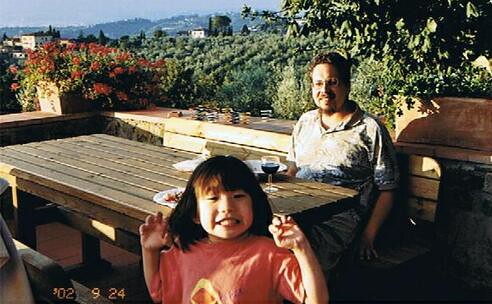Jonathan Galassi:
A translator is just someone who decides to do it. There are degrees that you can get; but it's really an existential decision that you make, that you're going to commit to working with someone else's work. I think there are probably a lot of psychoanalytic reasons for that, but -- there's several different types of translators sitting at this table, people who do it for a living, whatever you want to say about that, others who do it avocationally, like me, and maybe Peter, I'm not sure if you would put yourself in that, vocationally but not remuneratively, whatever, but -- we're all doing the same thing, the conditions may be different, the time constraints are different, but the actual work is the same. When you get right down to it.
Peter Cole:
I never wanted to be a translator, I had no intention whatsoever of being a translator; all through my college education, as a poet, I was always distancing myself from translating. In the 70's, there were many, I think, the prevalent attitude I encountered in English departments was to avoid translation, that translation was some sort of debased currency, a watered-down, de-eroticized version of English, that it just lacked that kind of primal contact, and I, ah, had a notion early on, kind of a Harold Bloomian riff, that my own poetry in English would somehow come out of Hebrew. And that was, like a lot of my notions, fairly delusive, because I didn't know Hebrew. And I grew up more or less like Joe in an assimilated Jewish family; I had some Hebrew from day school, but it was just, you know, kind of mechanical; but I thought this was something I needed to look into, and I was working in Providence, Rhode Island after I graduated from college in 1980, and I saw a notice that a British poet was coming to Brown to give a reading, a guy named Dennis Silk, who, Saul Bellow writes about him, in To Jerusalem and Back, so I went there and thought this would be my key, I'd been reading a lot of Judaica, Near Eastern mythology and all that, but all in English, and in walks this incredibly eccentric-looking guy, sort of, you know the Quasimodo hunch, big bushy eyebrows, and he gave a very good reading, and afterwards I had to ask one of those annoying questions, like I think, his early work when he was living in England seemed kind of Yeatsian, and then after 30 years of living in Israel, he had this much kind of more jagged, broken quality; more interesting to me too, his work; and I asked him, not knowing that after 30 years in the country he still barely spoke Hebrew, was it the influence of Hebrew that did this to your poetry? And he looked at me and he said, "Do you know Hebrew?" and I said "No, but I'd like to learn." And then he looked at me again, he said, "How long have you had this problem?" -- In a sense, that notion of, not the "problem of translation" the way people usually talk about it, but translation as this kind of dis-ease, not so much as healing almost but as this kind of chronic, persistent discomfort, that you learn to live with; before I even got to actually translating other people's works, I was drawn to that for whatever reason.

